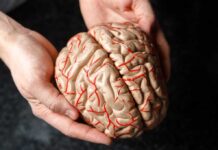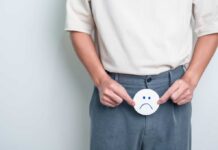
The battle between espresso and coffee for energy and focus isn’t just about taste—it’s about understanding how each affects your body differently to maximize brain power and productivity throughout your day.
At a Glance
- Espresso delivers a concentrated, quick caffeine hit for immediate energy, while regular coffee provides a more gradual, sustained release
- Most adults can safely consume up to 400mg of caffeine daily (equivalent to about 4 cups of coffee)
- Wait 1-2 hours after waking before having your first coffee to optimize its energizing effects
- Both coffee and espresso offer health benefits beyond energy, including reduced risk of neurodegenerative diseases and diabetes
- Strategic timing of caffeine intake throughout the day can maximize productivity while minimizing negative effects
Understanding Caffeine’s Effects on Your Body
Caffeine functions as a central nervous system stimulant, increasing brain activity and alertness by blocking adenosine receptors and boosting dopamine levels. This biochemical reaction is what gives both coffee and espresso their energizing properties. The difference lies in how quickly and intensely these effects manifest. Caffeine begins affecting your system within 15-45 minutes of consumption, with most people experiencing peak effects 30-60 minutes after intake. Beyond just providing a mental boost, caffeine can improve various aspects of cognitive function including mood, attention, processing speed, and memory.
Espresso: The Concentrated Energy Surge
Espresso provides a more concentrated caffeine delivery system than regular coffee. A typical 1-ounce shot contains about 63mg of caffeine, delivered in a small volume that your body absorbs quickly. This concentrated nature makes espresso ideal for situations requiring immediate mental alertness or a rapid energy boost. Many professionals turn to espresso before important meetings, presentations, or when hitting an afternoon energy slump. The rapid absorption means you’ll feel the effects sooner, but they may not last as long as those from regular coffee.
Because of its concentrated form, espresso often contains less overall caffeine than a standard cup of coffee—though it delivers this caffeine more rapidly. This makes it useful for a quick pick-me-up without exceeding your daily caffeine limit. Many people find espresso helps them power through specific tasks requiring intense focus for a shorter duration, rather than providing the sustained energy needed for longer work periods.
Coffee: Sustained Focus and Energy
Regular brewed coffee typically contains more total caffeine than espresso—about 95mg in an 8-ounce cup—but it’s diluted in a larger volume of liquid. This means your body absorbs the caffeine more gradually, resulting in a less intense but longer-lasting energy boost. Many people find that regular coffee provides sustained mental clarity and focus for 3-4 hours, making it ideal for extended work sessions or mornings when you need lasting energy.
The extended release pattern of regular coffee makes it particularly beneficial for tasks requiring sustained attention and productivity over longer periods. Many researchers, writers, and professionals who need to maintain focus throughout the morning often prefer regular coffee over espresso. Additionally, the larger volume means you’re likely to sip it more slowly, extending the delivery of caffeine into your system and helping maintain more consistent energy levels.
Optimizing Your Caffeine Strategy
For maximum benefit, wait 1-2 hours after waking before having your first coffee. This timing allows your natural cortisol levels (which peak upon waking) to stabilize, enhancing caffeine’s effectiveness. Spreading smaller servings throughout the day rather than consuming large amounts at once helps maintain steady energy without dramatic crashes. Most importantly, establish a caffeine cut-off time 8-10 hours before bedtime to prevent sleep disruption, as caffeine has a half-life of approximately 5-6 hours in most adults.
Health experts recommend limiting caffeine intake to no more than 400mg per day for most adults. For pregnant women, the recommendation drops to 200mg daily. Those with certain medical conditions, including anxiety disorders, sleep disorders, high blood pressure, or certain heart conditions, should consult with healthcare providers about appropriate caffeine consumption. Remember that both coffee and espresso should complement—not replace—a balanced diet, regular exercise, and adequate sleep for optimal cognitive function.


















